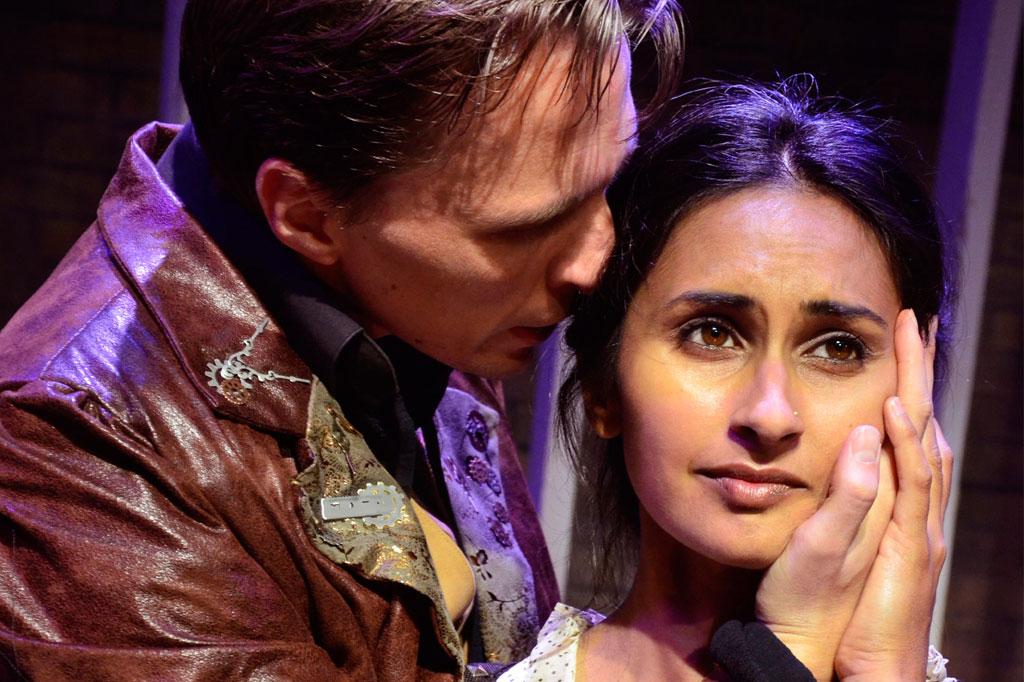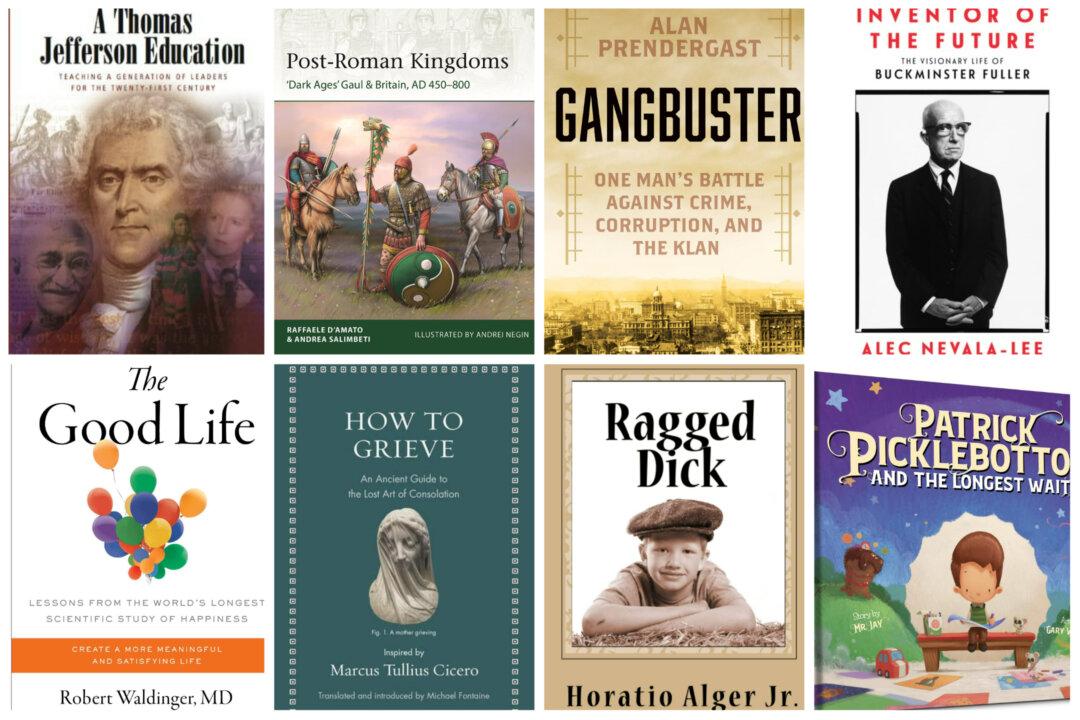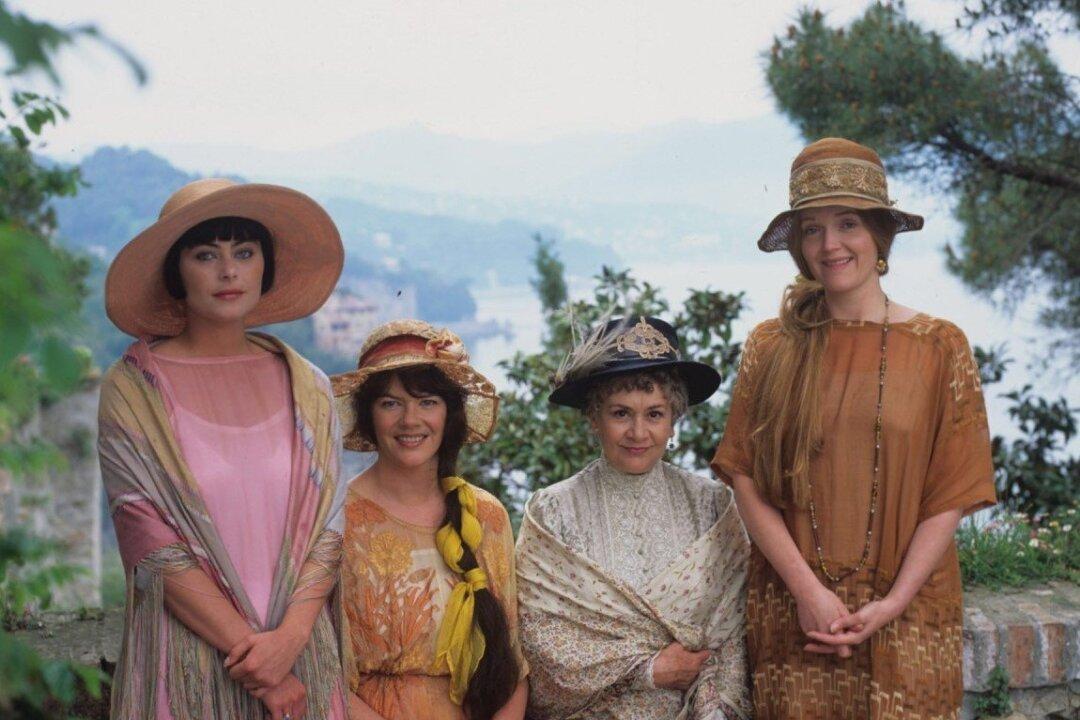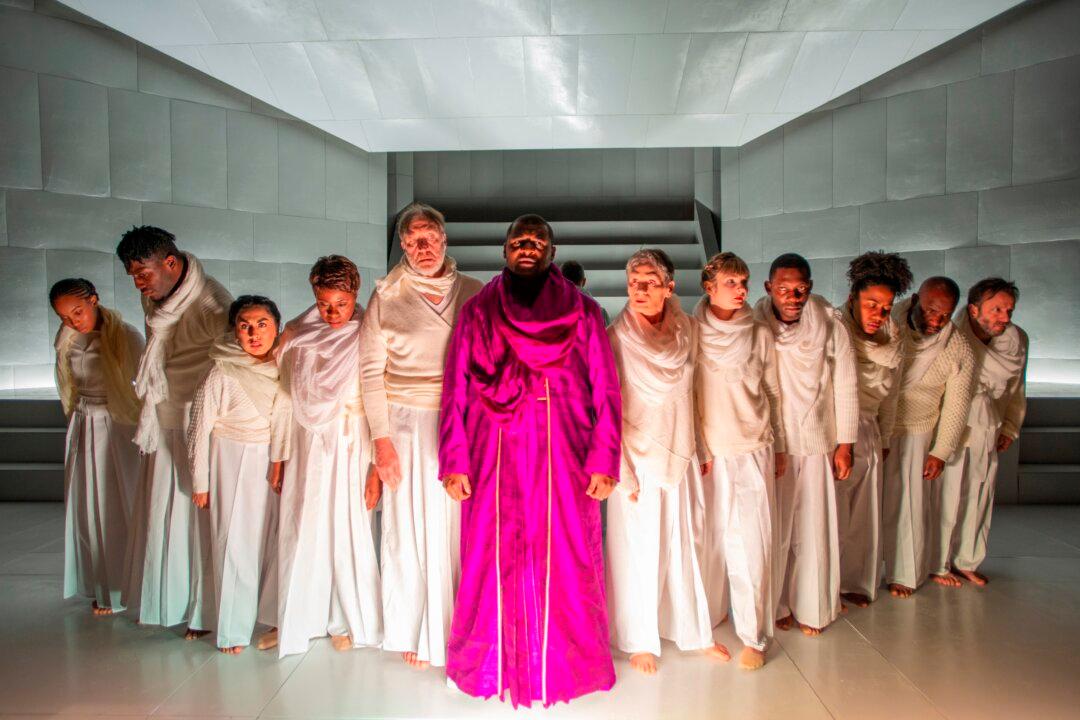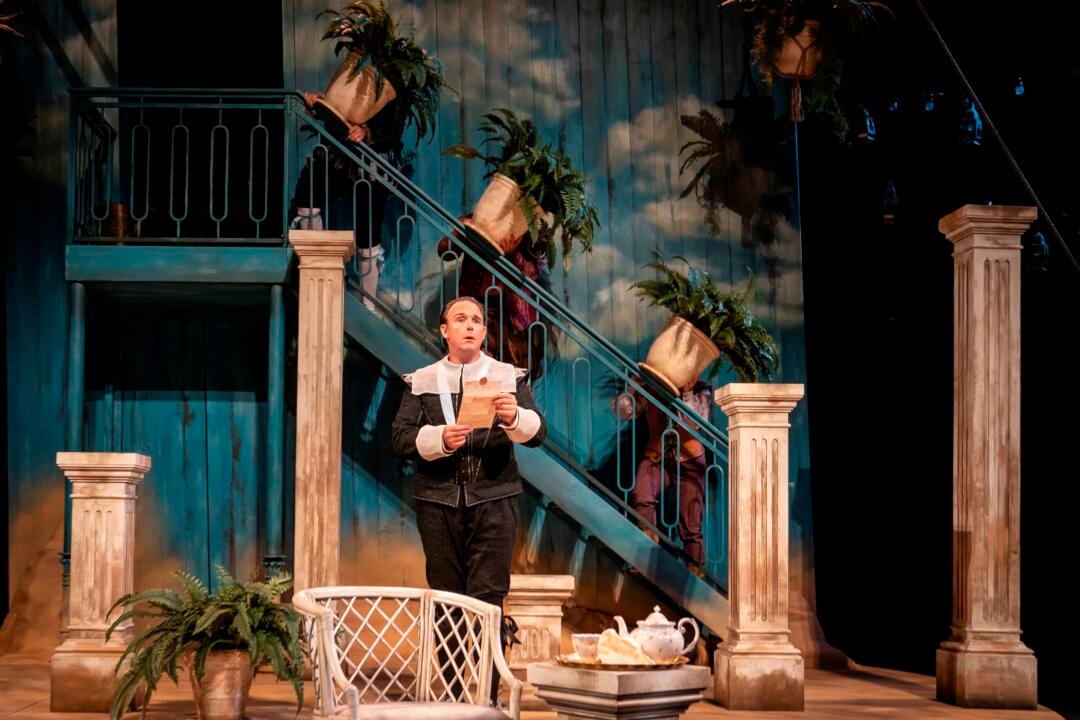CHICAGO—It was a relief to see Jane Eyre told as something more than a love story. The love story is fully present in Lifeline Theatre’s extended-run production of course, but it’s only a part of a bigger theme. The thrust of Christina Calvit’s adaptation captures the whole tale of a young woman who, staying true to herself, unites passion and principle.
As a child, Jane (Anu Bhatt) speaks against the wrong done to her. Her cruel aunt (Kyra Morris), who cannot bear her, sends her away to a charity school but not without first stamping her with the reputation of being a deceitful child.
The harsh schoolmaster Brocklehurst (Anthony Kayer) does his best to keep happiness from all the schoolgirls, but most callously instructs Jane’s classmates to shun her. Only sickly Helen (Maya Lou Hlava) befriends her.
Jane is haunted by her loveless past—literally. Playing evil and good respectively, Brocklehurst and Helen follow Jane in most of the scenes, and at key moments late in the story, Jane casts each off.
Hired as a governess straight from school, Jane finds the home she’s always craved. The affable housekeeper Mrs. Fairfax (Heather Currie) considers Jane a blessing, and Adele (Ada Grey), the estate master’s little French ward, loves her patient mistress.
In Edward Rochester (John Henry Roberts), the lord of the manor, Jane finds a strange but forceful figure who pays her more attention than she’s accustomed to and seems to respect her in his own brash way.
But something is not right in this happy, new life. Jane hears ghastly laughter at night, and no one will clearly explain who it is. Then Mr. Rochester is set afire—who set it? Mr. Rochester will not tell.


